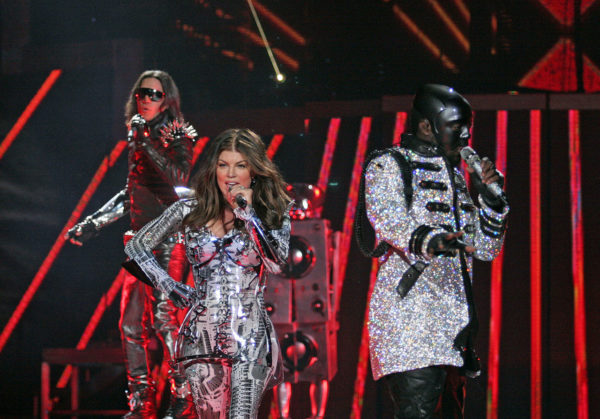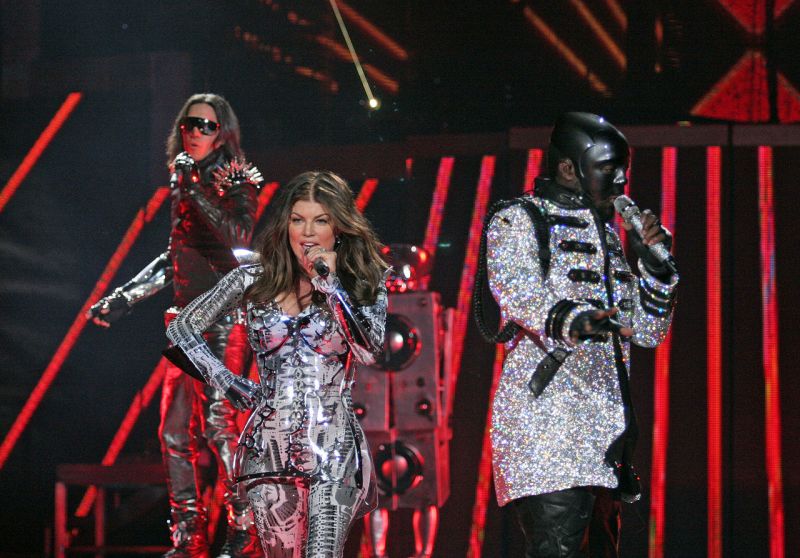
There is altogether too much music in the world for anyone to ever listen to. We’re not complaining, though; the vast archives of sound on the Internet – whether on streaming services, the depths of Youtube and SoundCloud or shared on music blogs both obscure and well-known – have made tapping into those histories easier than ever before. This playlist celebrates those incredible songs from decades past that we’ve recently discovered or rediscovered.
The Blue Nile, “From a Late Night Train” – Jacob Nierenberg, contributing writer
Since its inception in 2016, Pitchfork’s Sunday Review series has been a treat for a specific set of music nerds who don’t consume music so much as archive it. It’s given the site an excuse to write at length about masterpieces (Bob Dylan’s “Blood on the Tracks”) and overlooked classics (Fleetwood Mac’s “Tusk”) from before its time, along with the occasional out-of-left-field pick (Sarah McLachlan’s “Fumbling Towards Ecstasy”). “Hats” – the 1989 sophomore record from the Scottish sophisti-pop group The Blue Nile – could easily fall into either of the latter two categories. I can’t remember how I first came across the album four years ago, but I loved it at the time, only to put it on my shelf and quietly forget about it. When Pitchfork wrote a Sunday Review of “Hats” earlier this month, I listened to it again for the first time in years and fell in love with it all over again. As with most ‘80s pop, the music is polished and icy, almost sounding synthetic, but the lyrics are warm and poetic ruminations on love. While that’s true of pretty much all the songs on this album, “From a Late Night Train” is when things slow down and the feeling becomes impossible to ignore. Rain douses the lyrics, putting out cigarettes and dampening magazines, even seeping into the sound of the music; a piano and a trumpet, both blurred by reverb, are all there is to console vocalist Paul Buchanan’s heartbreak. I’m grateful to Pitchfork for not just reminding me that this album exists, but hopefully helping others discover it for the first time.
Starlight, “The Supermen Lovers” – Trenton Chang, staff writer
Starlight’s disco-inspired vibes and gentle vocals are a nostalgic journey. It’s a uniquely 2000s take on the ‘70s disco sound: It sounds vaguely quantized and punchy like the electronic music of today, yet there’s that grooving disco bass line and cheesy strings that give disco its musical fingerprint. A break in the middle gives us a synth solo – that’s nothing special by today’s standards, but it’s quite the flamboyant choice for 2001. Perhaps the most memorable part of the song, however, is the wholesome story in the lyrics; it’s the tale of someone seeking fame and success in the big city. It’s a vial of undisturbed hope, a fresh moment of possibility before reality sets in. You can’t help but dance; you can’t help but smile and feel, for four minutes, that everything is going to be alright.
Björk, “Isobel” – Nick Burns, staff writer
I’m still not sure how I managed to get through 21 years of life without becoming a deep admirer of the music of Björk, especially despite the repeated exhortations to listen to her made by countless friends of good taste. In any case, it finally happened this month. I particularly appreciated the song “Isobel,” from Björk’s 1995 album “Post.” The song features the colorful, freely associative lyrics that form a hallmark of modern Icelandic pop-rock, paired with an Afropop-influenced syncopated drum beat and soaring strings. “When she does it, she means to,” Björk darkly suggests, as the strings crescendo around her words. The fierce independence of the song’s protagonist, a girl named Isobel who lives alone in the woods, parallels Björk’s own refusal to hitch her wagon to anyone else’s star over a decades-long career characterized by relentless innovation.
Madeleine Peyroux, “La Javanaise” – Hamza Zahurullah, contributing writer
Full disclosure, I do not speak French, so I only found out what the lyrics to this song meant roughly three weeks after first hearing it. I heard it during “The Shape of Water,” and now I am simply in love with the song. I think I just have a soft spot for French music from the middle of the 20th century (despite the fact that this is a cover from the 21st century). The song fit the look, feel and story of “The Shape of Water” so well that every time I hear the song I just think back to seeing the movie and how happy and in love I felt.
Black Eyed Peas, “Joints & Jam” – Dylan Grosz, staff writer
“Not The Black Eyed Peas, just Black Eyed Peas,” said Stephen Colbert as he introduced will.i.am, all.de.app and Taboo. The group, absent Fergie, who left them in 2017, played their new single “STREET LIVIN’.” With conscious verses overlaid on jazzy beats, their new single couldn’t help but feel disingenuous. The BEP I know from the 2000s and early 2010s is the BEP that made “Boom Boom Pow” and “Pump It,” relatively mindless club and pop sugar that existed as rap for pop fans. However, comments on their performance were anything but cynical, many pointing to it as a return to form. To what form? After a bit of research, I found a Black Eyed Peas that existed before Fergie. Their 1998 and 2000 albums “Behind The Front” and “Bridging The Gap” featured the very production and lyrical style found in “STREET LIVIN’.” As their debut LP, “Behind The Front” is anything but artificial, featuring almost solely acoustic instrument sounds. One of its singles, “Joints & Jam,” features a sample-heavy beat with bright, bell-y keys. The trio address race through a positive call for harmony – maybe over some some joints and jams? Though I never got into their Fergie-era music, these older albums, especially songs like “Joints & Jam,” help me appreciate the legitimacy of will.i.am, app.de.app and Taboo as conscious rappers.
Blur, “Tender” – Jacob Kuppermann, desk editor
Despite their absolute dominance of the alternative rock scene of ’90s Britain, Blur never became quite as popular here in America – unlike their rivals in Oasis, they never had an American hit as big or defining as “Wonderwall,” and most Americans are more familiar with lead singer Damon Albarn’s performances with cartoon band/multimedia performance group Gorrilaz. As such, Blur has reached American music nerds, especially those who grew up after their mid-90s heyday, only fitfully – a song here or there, but never the full consideration that a band of their stature deserves. Case in point: Despite falling in love with Blur’s self-titled 1997 record in high school, I never was exposed to its follow up, 1999’s “13,” until I picked up a used CD of it from Amoeba records over winter break. God, was I missing out. While the whole record is a revelation, its opening track “Tender” is the most beautiful song on the album. While you would normally expect a song of its epic length – it pushes eight minutes – to build to a climax, “Tender” is genius in how it avoids that “Stairway to Heaven”-esque trope, so commonly copied by 80s power ballads and their ilk. Instead, “Tender” wallows in itself, its blend of electric and acoustic guitars and gospel choir lending the track a certain sublime and bittersweet feeling. Its lyrics, delivered by Albarn and electric guitarist Graham Coxon in a sort of call and response and anchored in the simple refrain of “Oh my baby, oh my baby/Oh why?,” match that feeling, capturing the weird, ambiguous heartbreak of falling out of love with someone dear to you.
Contact the Music beat writers at music ‘at’ stanforddaily.com.
